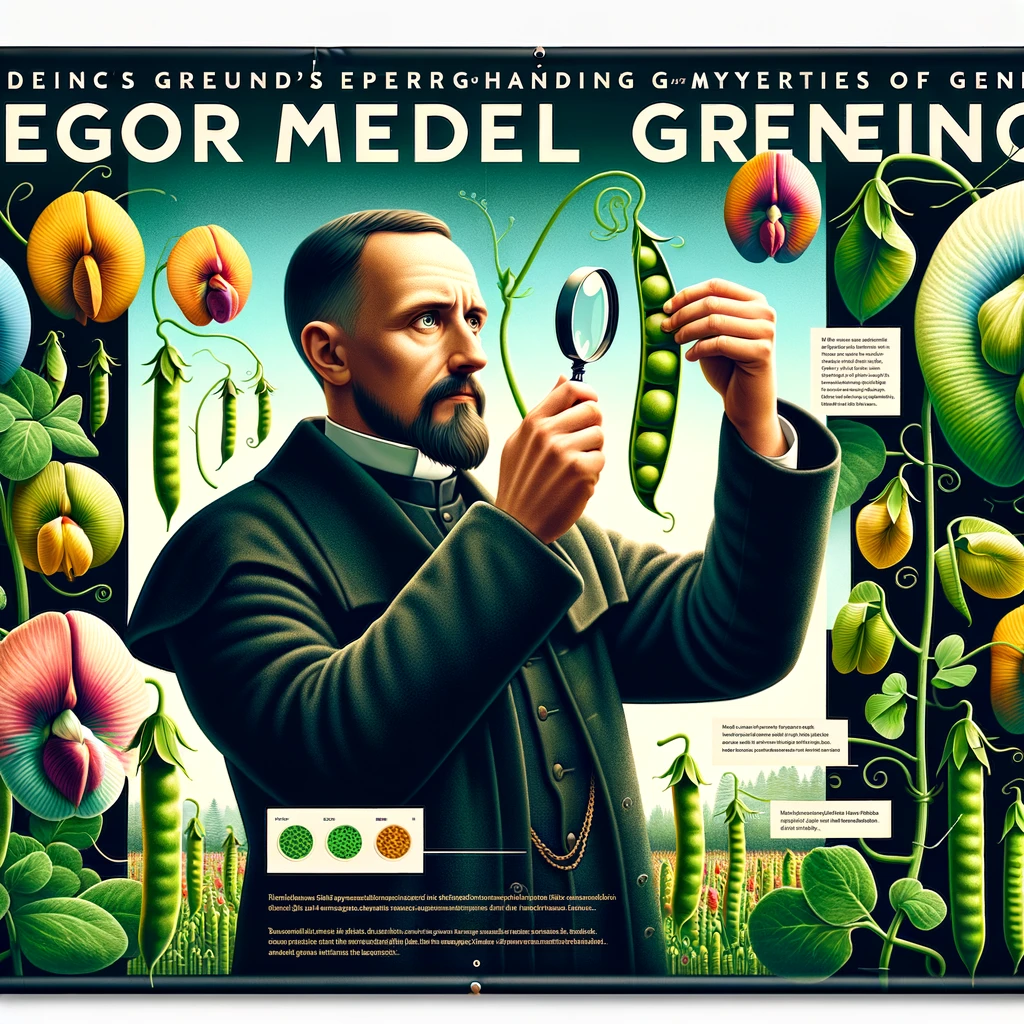
Gregor Mendel’s Groundbreaking Experiments: Unraveling the Mysteries of Genetics

Explain the significance of Mendel’s experiments in genetics.
“Gregor Mendel’s Groundbreaking Experiments: Unraveling the Mysteries of Genetics”
Gregor Mendel, a name synonymous with the genesis of classical genetics, embarked on a series of experiments that would forever alter our understanding of inheritance. His meticulous work with pea plants in the mid-1800s laid down the foundational principles of heredity, principles that would go on to form the bedrock of modern genetics.
The Laws of Inheritance
Through his experiments, Mendel formulated the Law of Segregation and the Law of Independent Assortment, demonstrating that traits are inherited as discrete units—later termed genes. His observation that traits are not blended but retained their identity across generations was revolutionary.
Statistical Approach to Biology
Mendel’s application of statistical methods to analyze his breeding experiments was pioneering. He counted and quantified his observations, applying mathematics to biology in a way that was ahead of his time.
Dominance and Recessiveness
His work established the concept of dominant and recessive alleles, explaining the patterns of trait inheritance and the reappearance of traits in subsequent generations.
Impact and Rediscovery
Though Mendel’s insights were not recognized during his lifetime, their rediscovery in the early 20th century cemented his legacy. The significance of Mendel’s experiments is profound, forming the cornerstone of genetic research and giving rise to the field of genetics.
Legacy in Modern Science
Today, Mendel’s principles remain integral to the study of genetics, aiding advancements in medicine, agriculture, and biotechnology. His legacy endures as scientists continue to explore the complexity of genetic inheritance and the genetic code.
In conclusion, Mendel’s experiments were not just about plants; they were about the fundamental rules that govern life itself. His discoveries remain crucial for anyone seeking to understand how life is passed on from one generation to the next, how traits are expressed, and how we, as a species, can harness this knowledge for the betterment of all.